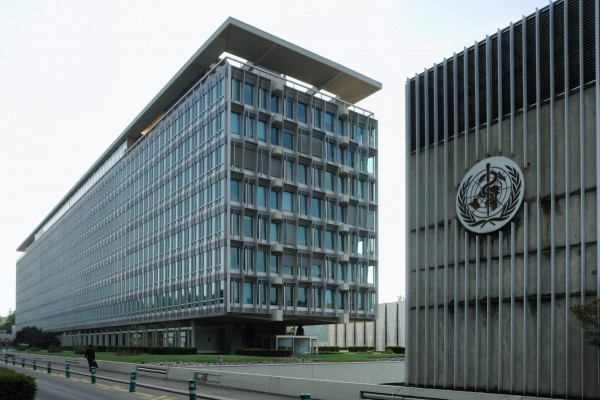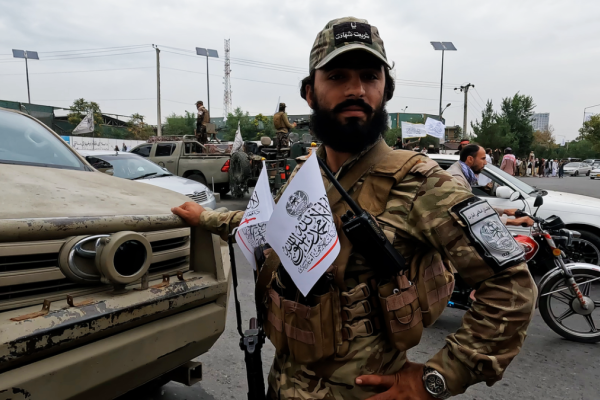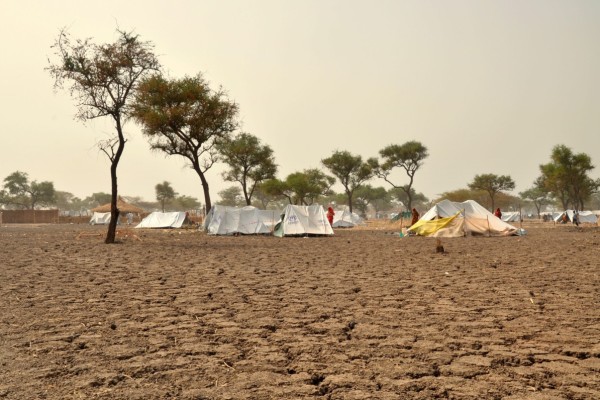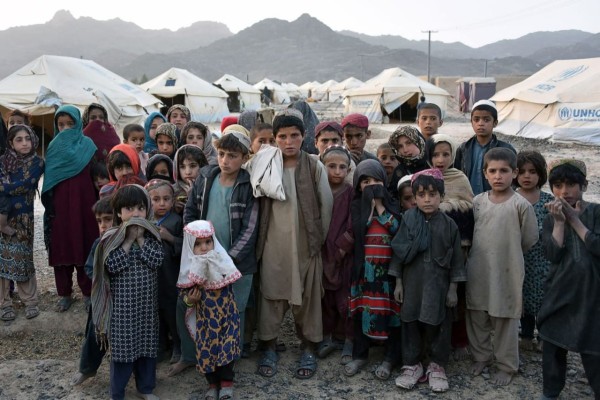With Afghanistan fiasco, Canada’s ‘feminist’ foreign policy lies in pieces
What went wrong and can Justin Trudeau’s new foreign policy team fix it?

With the Taliban trampling on women’s rights and girls’ education up and down the country, Justin Trudeau’s much touted ‘feminist foreign policy’ now lies in pieces. Photo courtesy the Canadian Council of Muslim Women.
Whatever may count as the West these days died on August 15, when Kabul fell to the Taliban. The collapse of Afghanistan has been called by a leading European politician the “biggest debacle for NATO” since the founding of the alliance. For NATO seeking to give itself a new, post-Cold War purpose in the defence of a liberal international order grounded in human rights, August 2021 will live on in infamy. The sheer strategic incompetence displayed at this juncture and the utter betrayal of Afghan security forces, interpreters, and other contractors by their Western allies sent shockwaves as far as Taiwan, emboldening the adversaries of American imperialism worldwide.
In the ensuing chaos desperate Afghans were clinging to departing aircraft, the US military had to rely on the Taliban for organizing safe passage of American citizens to Kabul airport, and tens of thousands who had dedicated their lives to implementing the West’s lofty goals were left behind. After this debacle, human rights centred US foreign policy, as regularly touted by Joe Biden in his “America is back” speeches, only elicit a chuckle at the Zhongnanhai in Beijing, and must cause bona fide dictators like Syria’s Bashar al-Assad a laughing fit. Ideologically and in terms of its soft power, the West filed for bankruptcy the day the last NATO transport plane left the skies over Kabul.
This fiasco carries even more weight for a middle power like Canada, whose global influence has been grounded in the promotion of values, not military might. Canada’s Feminist Foreign Policy (FFP), unveiled with much fanfare by the Trudeau government in 2017, has been at the core of its Afghanistan policy. With the Taliban trampling on women’s rights and girls’ education up and down the country, the policy now lies in pieces. As millions of Afghans are facing starvation this winter, the Taliban’s exclusion of women from all spheres of society is escalating, revenge killings of human rights defenders are proliferating, and Canada’s international reputation is lying in tatters, it is up to a new foreign policy team to salvage what is left of Canada’s credibility and to live up to the prime minister’s grandiose promises made on the campaign trail.
Feminist Foreign Policy: More than just branding?
The principles of a feminist foreign policy are not a Canadian brainchild—Hillary Clinton had outlined them and Sweden’s Margot Wallström had implemented them long before self-declared feminist Justin Trudeau “discovered” them, adorning himself with plumes from—what else?—two women in his cabinet, Chrystia Freeland and Marie-Claude Bibeau. On paper this new initiative sounded cutting-edge and path-breaking, pledging to prioritize gender equality and the empowerment of women and girls in all aspects of the country’s foreign policy, trade relations, and humanitarian assistance. Yet, it failed to go much beyond mere announcements. In fact, nowhere in the government’s white papers and related documents is it defined what Global Affairs Canada (GAC) actually means by “feminist.”
To make things worse, Canada’s Feminist International Assistance Policy (FIAP), designed to become the linchpin of FFP, where proclamations were meant to be translated into action, was allocated no additional resources, leaving one commentator to discount the entire initiative as “feminism on the cheap.” Add to this Canada’s odious record of arms sales to regimes notorious for riding roughshod over women’s rights such as Saudi Arabia, and one cannot help but conclude that overall, as so often before, the Trudeau government had adopted progressive speak as a branding exercise that sounded reformist and made the prime minister feel good but lacked substance and was found wanting in its execution.
Whatever one may think of FFP and FIAP, though, whether Ottawa had missed the memo on intersectionality in its understanding of feminism, whether its definition of gender equality remained grounded in neoliberalism, or whether the prime minister appreciated feminism only for its performative value, in Afghanistan Canada’s focus on emancipation had truly made a difference. According to the World Bank, over the past twenty years maternal mortality in the country has been reduced by 75 percent, births per women have decreased from 7.3 to 4.6, more than five million girls are attending school, and a quarter of all civil servants are women (16 percent in senior management), as are 27 percent of the country’s MPs, which is higher than the average for low-income countries.
A 2019 GAC report (ominously taken offline in September) identified Canada as leading among Western donors in funding gender equality programs, yet criticised FIAP’s lack of coordination with local stakeholders and its overall one-size-fits-all approach to gender issues in the majority world. Despite these glaring shortcomings, Afghanistan can be considered FFP’s greatest success story, birthing a thriving civil society. Yet, when it was put to the ultimate test, and Canada given the opportunity to prove itself as a champion of women’s rights, it failed abysmally. What is more, as Afghan activists remind us, their embrace of the principles and promises of emancipation is the very thing that now puts their lives at risk.
Years ago, Canada boasted of a “feminist foreign policy” that meant lecturing China about gender equity. But getting women out of Afghanistan now is feminist foreign policy that actually matters, and Canada has completely failed https://t.co/ZvtKB21Fwp
— Robyn Urback (@RobynUrback) August 26, 2021
Unprecedented negligence and incompetence
It is not that the writing had not been on the wall in Afghanistan. While the speed of the Taliban victory in August came as a surprise, the eventual endgame in Afghanistan had been clear to most analysts ever since Donald Trump had sold out the country to the Taliban in Doha in 2020. Since April it had been obvious that Joe Biden, whose much lauded empathy appears to be geographically and morally limited to what lies between Honolulu and Bangor, would not differ from his predecessor in his callous disregard for Afghan lives.
Already back in 2010, when pressed by Richard Holbrooke on what consequences a US troop withdrawal would have for the civilian population, Biden snapped back, “Fuck that, we don’t have to worry about that. We did that in Vietnam, Nixon and Kissinger got away with it.” He then proceeded to apply these ethics to the planning and execution of the withdrawal, against the pleas of his generals and European allies, and counting on the midterms being 15 months away, was not much bothered by the Saigon-like images broadcasted from Kabul.
Neither was Trudeau, who went ahead calling his vanity election on the very day Kabul fell. Canada was as unprepared as any country for the humanitarian crisis unfolding, had done literally nothing to prepare for the evacuation of locals who had aided the Canadian presence in Afghanistan for 20 years, yet because it made for acclamatory campaign coverage—and since overpromising is part of the Trudeau-Liberal Party DNA—the government talked big of resettling 20,000 women leaders, human rights defenders and journalists in addition to those who had worked for the Canadian government (in September this number was doubled to 40,000, of who 3,000 have arrived in Canada as of today). This noble commitment initially produced the desired headlines, yet its execution, among many other factors, was stymied by ministers too distracted from crisis response by the call of the campaign trail. In short, the coordination of the Canadian evacuation effort became collateral damage of the election none but one man wanted.
The consequence was institutional incompetence, unprecedented negligence, complete cluelessness about the situation on the ground, and lack of inter-agency cooperation or liaising with Canadian NGOs trying to get their local staff to safety and to identify Afghan human rights defenders for the government. The utter chaos an overwhelmed Canadian government displayed in the two weeks between the fall of Kabul and NATO abandoning the airport can perhaps best be illustrated by the family of the Minister for Women and Gender Equality, Maryam Monsef, frantically calling powerless Canadian NGOs to help them evacuate relatives, instead of her government.
When that government took the initiative, it increased the risk for vulnerable Afghans, such as when it instructed women’s rights defenders to jostle through a violent throng of thousands to reach a designated Kabul hotel, wear a red headscarf, and shout “Canada” so that officials would notice them—all under the watchful eye of the Taliban. Some local staff of Canadian NGOs undertook the perilous journey to the airport a dozen times, passing Taliban checkpoints and armed thugs, routinely harassed and beaten in front of their young children, camped for hours at the airport gates, only to be turned away by Canadian soldiers. As of today, of Canadian partner NGOs only 10 percent of the local staff eligible for expatriation have made it safely out of Afghanistan, many stuck in limbo in Pakistan without any direction from Immigration, Refugees, and Citizenship Canada (IRCC). In fact, that the government has not learned anything from its mistakes was evidenced two weeks ago when the IRCC erroneously leaked the names, addresses, and pictures of hundreds of vulnerable Afghans trying to escape to Canada, essentially providing the Taliban with a hit list.
To save what can be saved
Today, two and a half months after the fall of Kabul, the situation in Afghanistan could not be more dire. It has to be accepted that all that has been achieved there in the past twenty years is forsaken. With the totalitarian Taliban reign among the most misogynist the contemporary world has seen, Afghanistan is a litmus test not only for any feminist foreign policy but for human rights in general. If Canada continues to cruelly abandon those women and young girls whose minds, dreams, and aspirations it has helped shape, it forfeits all moral authority.
If the West cannot be bothered to at least mitigate this femicide happening right before our very eyes, any future reference to feminism by any Western politician will ring utterly hollow. With the Taliban in absolute control, unimpeded to establish whatever patriarchal terror regime their crude misinterpretation of Islam prescribes, all that is left now is to save what can be saved. And that is Afghanistan’s people, first and foremost its courageous women activists, female educators, journalists, politicians, and human rights defenders, and the ideals they realized in their work.
Much has been written these days about Trudeau using the autumn of his premiership to build a legacy. If he wants to prove his critics wrong, affirm his feminist credentials with action rather than lofty rhetoric, and salvage what is left of Canada’s FFP, he needs to launch the biggest rescue operation this country has ever seen, turning Canada into a safe haven for Afghan women, at least allowing them to experience the female empowerment Canadian NGOs have supported, in the safety of exile.
Alas, the execution of such a herculean national effort has been left with a team whose qualifications are questionable at best. The new Minister of Foreign Affairs, Mélanie Joly—the fifth in six years—lacks any credentials in the field, has been given the prestigious portfolio to reward her managing the Liberals’ election campaigns in Québec, and her ministerial record so far can be generously described as patchy. The incumbent Minister of International Development, the hapless Harjit Sajjan, can claim first-hand Afghanistan experience aplenty (made up and actual), but for him the new office is a last chance saloon, a final opportunity for proving himself after presiding over systemic sexual misconduct in the Department of Defence getting brushed under the rug for years—a track record on gender equality that understandably has feminist practitioners in Canadian development aid concerned. And perhaps the most important office in this effort, immigration, has been given to newbie Sean Fraser about whom not much can be said beyond that Maclean’s thinks him a rising star for his oratory skills.
With such a team in charge, is it any wonder that Canadian NGOs desperately trying to get women out of Afghanistan are throwing their hands up in despair? However, one can also take a less pessimistic perspective. Joly and Fraser have shown an abundance of ambition and now need to prove themselves to gain a favourable position for post-Trudeau inner-party power plays. If they were to pursue their career goals by thinking big and bold and showing leadership and political will in their offices, signposting for Trudeau a way to shine, they could indeed make a difference. That would require the government to:
- Streamline the application process for special category visa holders and make it more accessible for vulnerable women and ethnic minorities in the country.
- Exert pressure on the Taliban to allow vulnerable Afghans and their family members who have been preliminarily approved for expatriation to leave the country and to guarantee them free passage.
- In coordination with the United Nations and other international organizations establish humanitarian corridors from major Afghan cities to the borders these vulnerable Afghans can use for safe transit.
- Liaise with NATO partners to monitor the Taliban’s adherence to their commitments via accelerated satellite and drone reconnaissance.
- Negotiate with Pakistan and other neighbouring countries UN-administered rallying points near the border (for example in Quetta or Termez in Uzbekistan), where Afghan applicants’ status can be verified, their expatriation is processed and from where they can be transported to major international airports.
These are the provisions a coalition of Canadian NGOs working on the expatriation of vulnerable Afghans have requested. This is what Canada must do in cooperation with its international partners if Trudeau’s new foreign policy team musters the political will and leadership to see it through. This is what Canada as a nation can achieve if we all keep up the political pressure on the government to deliver on its campaign promises to rescue 40,000 Afghan human rights defenders, not over the course of years but months—while they are still alive.
Hannes Černy is an Assistant Professor of International Relations at Northumbria University in the United Kingdom, where he works on sovereignty, statehood, and ethno-nationalist conflict. There he is the founding Director of an MA Program in International Relations, Conflict and Security at the Newcastle and Amsterdam campuses. He has also taught at other UK universities and in Germany, at Mount Allison University in Canada and at the Central European University, a private liberal arts institution of higher education that was forced out of Hungary by nationalist strongman Viktor Orban. Follow him on Twitter @HannesCerny.










